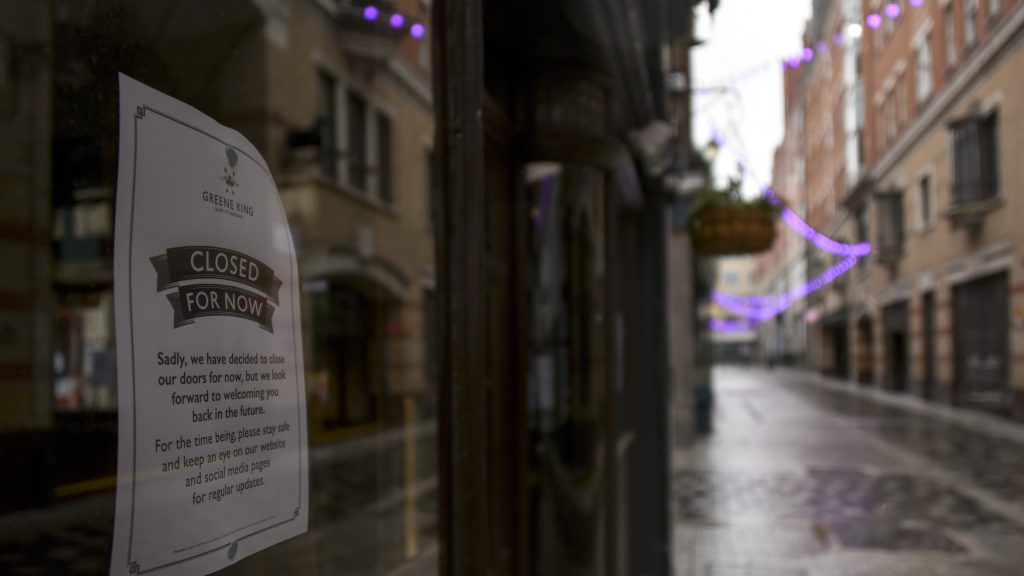Britain’s economy last year experienced the steepest drop in the last 300 years due to the coronavirus pandemic. Despite this, it has avoided a double-dip recession, according to government statistics.
The Office for National Statistics (ONS) revealed that the UK’s gross domestic product (GDP) dropped by 9.9% in 2020. This marked the biggest fall in annual GDP since the Great Frost of 1709 when the economy shrank by 13%.
Economist Eva Martin Montero said that this decline was likely the largest annual fall among the Group of Seven countries.
“Restrictions on economic activity together with the failure to secure a free trade agreement with the EU brought grave additional economic disorders to UK, which will be translated in drastic shocks in productivity, jobs and trade in the long term,” she said.
The Positive
But the ONS report stated that monthly GDP increased by 1.2% during December when lockdown restrictions eased for the holiday period in many parts of the country.
In the last quarter (October to December), services grew by 1.7%, production by 1.8% and construction by 4.6%. Pubs, restaurants and cafes recovered some losses after the November lockdown. People ventured out, trusting the government guidance and the coronavirus test and trace schemes across the UK.
The Negative
When the coronavirus cases skyrocketed after the easing of restrictions over Christmas, the government put the country in another lockdown. As a result, even with monthly GPD rising slightly at the end of the year, it still remained 6.3% below February 2020 levels.

The overall decline in 2020 was more than twice as deep than in 2009 when the global financial crisis caused UK’s GDP to fall 4.1%.
Hopeful Future
Handelsbanken’s UK Chief Economist, James Sproule, told the Associated Press that the UK’s GDP may look worse because Britain measures the figure differently from other countries.
“If schoolchildren are not being taught, measured output falls even if teachers are still being employed,” he said. “This approach resulted in UK’s GDP figures falling more sharply than others in the pandemic, but, equally, the restarting of schools will boost output figures in the recovery.”
Montero believes that Britain will be able to recover, but “it will probably take more than two years to be in its pre-virus level”.

